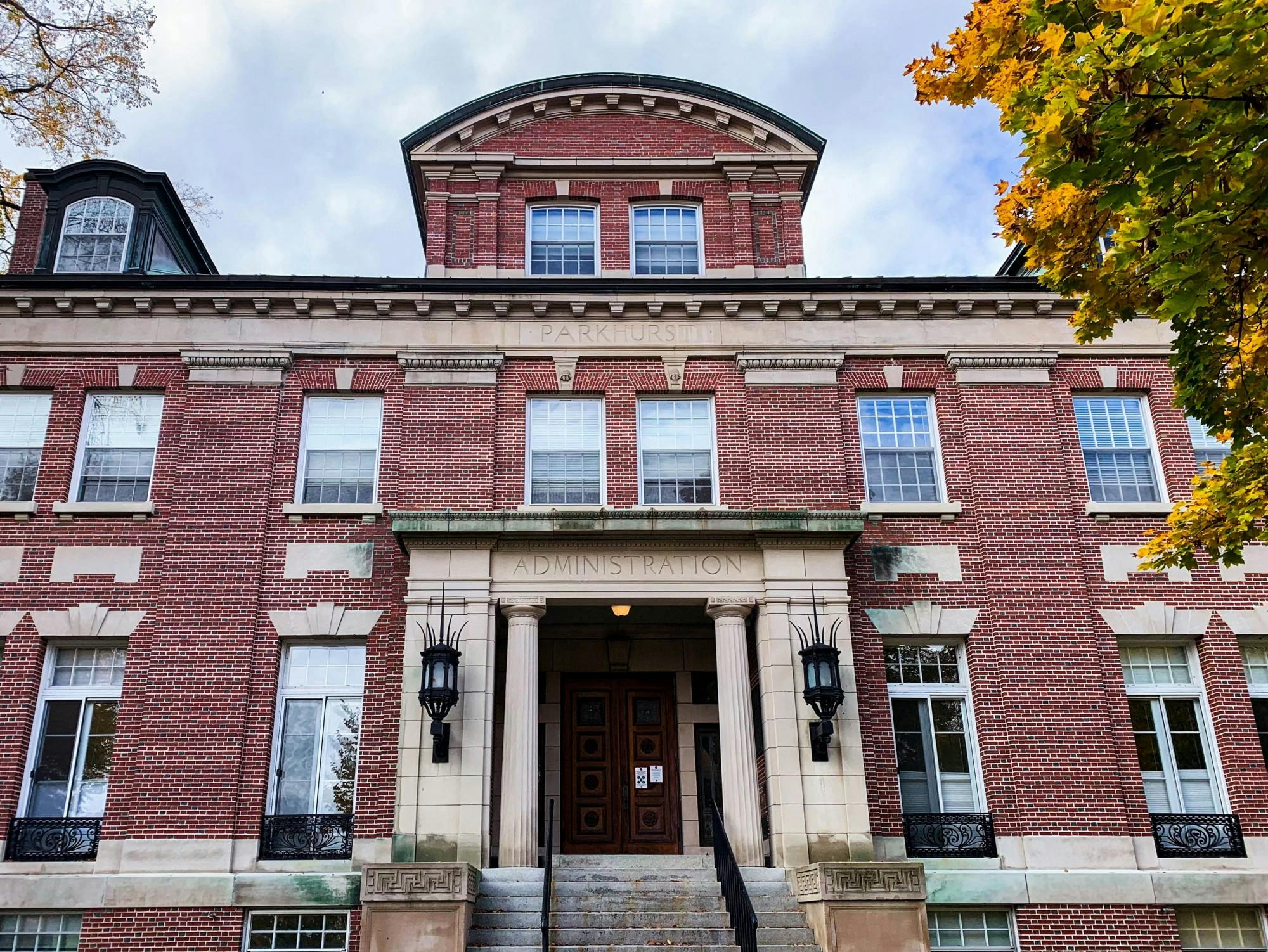On Sept. 16, the Foundation for Individual Rights and Expression, a nonprofit organization dedicated to protecting free speech rights, improved Dartmouth’s “speech code rating” to the “green light” level. FIRE and online survey company College Pulse originally ranked Dartmouth 224th out of 251 schools with a “yellow light” rating in their annual collaborative College Free Speech Rankings on Sept. 5.
According to FIRE director of policy reform Laura Beltz, Dartmouth received its initial rating due to policies — such as the College’s bias incident reporting protocol — “that could easily be applied by an administrator to restrict free speech.” FIRE then worked with the College to revise policies on bias reporting and harassment, allowing them to secure the “green light” designation, she explained. According to an online update from FIRE, the College now has “no written policies that seriously imperil student free speech rights.”
“It was great working with Dartmouth,” Beltz said. “The administration is demonstrating that it has a pretty clear commitment to free speech and reached out to us to collaborate.”
The updated rating — which made Dartmouth the only Ivy League university with a “green light” designation — follows months of debate regarding free speech and expression on campus. After 89 individuals were arrested at a pro-Palestinian protest on May 1, several community members expressed concern about freedom of expression. Others, meanwhile, rallied behind the College’s response.
Last month, the Office of the President and Office of the Provost released an email statement stating their “shared commitment to Dartmouth’s core values of freedom of expression.” The email announced various free expression initiatives, including the continuation of “faculty-led working groups” on updating College speech policies and the development of a Freedom of Expression Advisory Program that will “include mediators and advisers to respond as needed to events on campus.”
According to Beltz, FIRE and College Pulse surveyed students from 251 colleges nationwide to create the rankings. Beltz said the survey questions gathered student perceptions about “what the campus climate for free speech is like” at their colleges. College Pulse and FIRE then “combine[d]” the survey data “with other components” — including past actions by college administrations and the college’s speech code rating — before finalizing the rankings, she explained.
According to FIRE’s website, a college’s speech code rating is determined by “the degree to which free speech is curtailed” by an institution’s speech policies.
Although the organizations surveyed students to create the rankings, some community members disagreed with the speech code rating. One alumnus, who requested anonymity to speak candidly about his opinions, said he contacted FIRE to dispute the upgraded speech code rating. He said he believes Beilock was “trying to constrain” the speech of groups that she “doesn’t favor.”
“I think she’s creating an atmosphere of a little bit of fear,” the alumnus said. “She’s had students arrested on two occasions on campus.”
In addition to the May 1 arrests, Hanover Police Department officers arrested two undergraduate students on criminal trespassing charges on Oct. 28. The students were encamped on the front lawn of Parkhurst Hall to call for the College to divest its endowment from “organizations that are complicit in apartheid and its apparatuses.”
While the alumnus said he does not “personally” agree with the tactics and statements from protesters, he felt Beilock’s reaction to the protests “went overboard.”
“Beilock’s response has only been to antagonize and silence them in ways that are completely against what she has said about wanting to facilitate free speech,” the alumnus said.
The alumnus added that, during his time at the College in the 1980s, the administration “didn’t have such a focus on regulation” and instead created an “anything goes” atmosphere. He said he felt that Beilock’s actions represented “the opposite” of this attitude.
Anthropology professor Sergei Kan, on the other hand, said he “totally agree[s]” with FIRE’s rating change. He said he believes that free speech does not allow students “to violate College rules,” adding that he found Beilock’s approach to free speech “thoughtful and reasonable.”
“If students want to engage in civil disobedience, they should be prepared to face the consequences,” Kan said. “Freedom of speech doesn’t mean you can do anything you want.”
Kan said he felt Beilock’s administration has created more “openness and dialogue” from students than past administrations. He noted the “variety of politicians” coming to speak at the College through the Rockefeller Center’s presidential election speaker series, adding that students should be prepared to listen to opinions “that are different from their own.”
“Freedom of speech includes presentation of views that are not supported by many of the students and others on campus,” Kan said.
In an email statement to The Dartmouth earlier this year, Peter Slovenski ’79, who founded the Dartmouth Free Speech Alliance — an alumni organization that advocates for free speech “on and off campus” — noted that the College’s initial “yellow light” score was “embarrassingly low.”
Slovenski added that the College was “famous for hosting lively discussions” during his time at Dartmouth, but many colleges have since become “places that promote a line-up of correct positions.”
“There is an expectation and a lot of pressure to agree with one political party,” Slovenski wrote.
Sean Wallace ’27, a member of the Palestinian Solidarity Coalition, said they do not believe Dartmouth’s current approach to free speech “align[s] with the liberal values that the College was founded on.”
“Free speech is oppressed by the administration,” Wallace said. “I think that public protest is a central aspect of free speech, and it has been made pretty clear that the administration does not want public protests to occur.”
Beltz said protesters should not be “discouraged” from free expression, adding that college administrations should greet incoming students with “what they can do” rather than “what they can’t do.”
“I hope to see colleges arming students with the tools to express themselves rather than limiting those [tools] and shutting off channels for communication,” she said.




